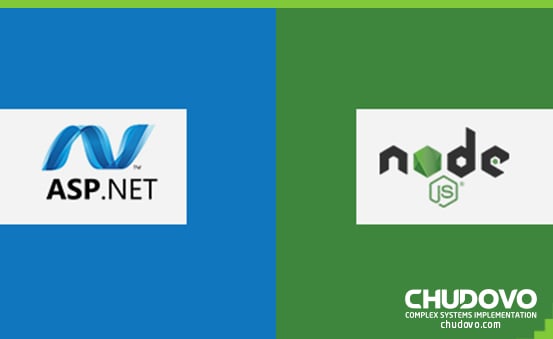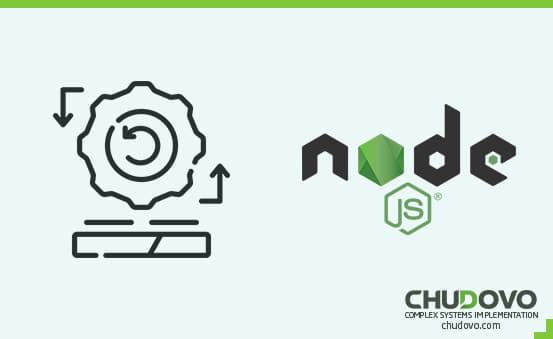Top Node.js Alternatives 2024
Node.js has consistently emerged as the most popular web framework in the Stack Overflow Developer Surveys for the last couple of years. This is for a good reason. Node.js offers scalability and high performance and played a significant role in popularizing the use of JavaScript on the server side.
As much as Node.js has been revolutionary, you might consider exploring other Node.js alternatives for server-side development. This can be due to specific project requirements and constraints, preferences, or even curiosity to explore other options.
This article will cover the top Node.js alternatives you should consider in 2024.
Table of Content:
- What is Node.js?
- Why Is Node.js So Popular?
- Reasons to Consider Node.js Alternatives
- Top Node.js Alternatives
- Conclusion
What is Node.js?
Node.js is a free, open-source, cross-platform JavaScript runtime environment that allows developers to execute JavaScript code outside a web browser. Node.js uses Google’s V8 JavaScript engine to execute JavaScript code on the server side, allowing developers to create servers, scripts, web applications, and command line tools using JavaScript.
According to the 2023 Stack Overflow Developer Survey, Node.js was the most popular web framework among professional developers, and developers learning how to code. Node.js is widely used in building web servers, APIs, microservices, real-time web applications, and command-line tools.
Why Is Node.js So Popular?
Node.js is widely used by developers, startups, businesses, and enterprises. Some of the reasons for its popularity and wide use include:
- High Performance: Node.js is built on Google’s V8 JavaScript Engine which compiles JavaScript directly to native machine code before execution. This results in very high performance when executing operations. Additionally, Node.js uses a single-threaded, event-driven architecture that minimizes overhead and maximizes throughput. This makes Node.js very good at handling many connections simultaneously making it ideal for building fast and scalable applications.
- Cross-Platform Compatibility: The V8 JavaScript runtime engine was designed to run JavaScript code on various operating systems. Since Node.js is built on top of the V8 JavaScript engine, it allows developers to write code once, and run it on multiple operating systems including Windows, Linux, and macOS.
- Asynchronous and Non-blocking I/O – Node.js is widely used in building real-time applications as it uses an event-driven, non-blocking I/O model making it very efficient in handling concurrent requests. The non-blocking nature of Node.js also allows it to handle a large number of simultaneous connections.
- Scalability – Node.js is a lightweight framework that is inherently scalable. Node.js applications can be scaled using clusters, adding more instances, load balancing, and utilizing multi-core systems. Additionally, Node.js has excellent support for microservices and serverless architectures allowing the development of highly scalable and resilient large-scale applications.
- Large Ecosystem – Node.js was released in 2009. Ever since its release, a lot of Node.js modules and packages have been developed for the framework and made available through the npm (Node Package Manager) registry. Node.js currently has a rich ecosystem making it easy to find and use libraries with a wide range of functionalities. This can help speed up development since you don’t have to write your libraries for common functionalities such as web servers, authentication, parsing, testing, and more.
- Community Support – Node.js has a large and active community of developers, contributors, and enthusiasts learning Node.js, working with Node.js, and improving Node.js. Those learning Node.js won’t lack materials, and companies that need Node.js developers have access to a large pool of expertise. Additionally, Node.js is backed by companies such as Microsoft guaranteeing continuous improvement of the framework.

Node.js is highly performant, scalable, cross-platform, non-blocking, and has a large ecosystem and active community. All this makes Node.js a very useful web development framework and companies and organizations such as Nasa, LinkedIn, Paypal, and Netflix have adopted the framework in their development.
Although Node.js is a very capable server-side development tool, it is not ideal for all use cases. Sometimes, you might want to consider alternatives to Node.js.
Reasons to Consider Node.js Alternatives
Node.js is a development framework that has its strengths and weaknesses. Before embarking on any project, it is important to consider the needs and unique requirements of the project. At times, Node.js may not be the best tool to use hence the need to consider its alternatives.
Some of the reasons to consider alternatives to Node.js include:
- Preference for Strongly Typed Languages: Node.js is built on JavaScript which is dynamically typed with no support for strong type checking. This means errors related to incorrect variables and method invocations will only be caught at runtime. If this is an undesirable trait, you should consider strongly typed languages with strong type systems such as GO, Java, Rust, or TypeScript which catch errors at compile time.
- Performance And Scalability – Although Node.js offers very good performance, certain languages such as Java offer even better performance and scalability, particularly in CPU-intensive tasks and applications. If you’re working on applications that require high throughput, heavy computation processing, and multithreading, Node.js is not the best choice.
- Security Concerns – In case you’re working on a project where security is very important, it might make sense to use a tool that comes with better security features out of the box, unlike Node.js. Node.js applications use modules, packages, and dependencies which at times are insecure, introducing security risks in applications.
- Library Limitations – Although Node.js has a vast ecosystem of modules, packages, and libraries you may find some functionalities are better supported in other ecosystems. For instance, when working on data science projects, Python has a better ecosystem for data science.
- Complex Asynchronous Code – Node.js uses an asynchronous, non-blocking architecture. Although this makes it highly performant, it can lead to complexity that is hard to manage, particularly in large applications with many asynchronous operations. This may lead to callback hell and debugging can be very difficult.
To overcome these challenges that arise from using Node.js, consider the following alternatives:
Top Node.js Alternatives
The best Node.js alternatives include:

Deno
Deno is an open-source JavaScript and TypeScript runtime environment. The interesting thing about Deno is that it was created by Ryan Dahl, who also created Node.js. According to Ryan Dahl, Deno overcomes the shortcomings of Node.js including its design flaws and security concerns.
For instance, setting up a Node.js project requires a lot of configuration before you can start coding. Additionally, it introduces complexity in programming, comes with a node modules folder with so much boilerplate code, and has no built-in support for TypeScript.
To overcome all this, Deno comes with built-in support for TypeScript and web standards with zero-config TypeScript. This means that Deno comes with the type checking that Node.js lacks. Deno also addresses some of the security concerns present in Node.js by providing a secure sandbox environment and restricting access to critical resources by default. It also introduces a modern architecture module system that improves performances and supports ES modules natively without a package manager like npm.
Go
Go programming language is a statically typed, compiled language developed by Google. According to its official documentation, Go compiles quickly to machine code and has the convenience of garbage collection and the power of run-time reflection. Its concurrency mechanism makes it easy to write programs that get the best out of multicore and networked machines. Go is widely used in developing cloud and server-side applications, DevOps tools, command line tools, networking and distributed systems, and big data processing.
Compared to Node.js, Go provides built-in support for concurrency which makes writing concurrent code easier and more efficient, unlike what you’ll have to deal with while using the callback-based approach in Node.js. Additionally, since Go is compiled to machine code and has efficient runtime, it can perform better and consume fewer resources as compared to Node.js
.NET
.NET is a free, open-source, and cross-platform development framework developed by Microsoft. Its main programming language is C#, a strongly typed, object-oriented programming language. .NET comes with a comprehensive platform for developing, deploying, and running applications on various operating systems, including Windows, macOS, and Linux. Its cross-platform capabilities are one of its key strengths.
.NET is used to build desktop, mobile, cloud, enterprise applications, and web applications. As an alternative to Node.js, .NET offers support for multiple programming languages including C#, Visual Basic.NET, and F#. It also provides better error checking and type safety at compile time. It also offers high performance and scalability and is particularly suited for building applications for the Windows platform.
You might prefer .NET development over Node.js in case you’re building enterprise applications with complex business logic, and high performance in CPU-intensive applications. It is also the better choice if your application primarily targets the Windows platform or requires tight integration and interoperability with Microsoft products.

Certified engineers
Convenient rates
Fast start
Profitable conditions
Agreement with
EU company
English and German
speaking engineers
Java
Java is a tried and tested programming language that is a favorite among enterprises. Java is an object-oriented and statically typed programming language used to develop applications that run across multiple platforms. Java is known for its performance, scalability, security, reliability, and rich, mature ecosystem.
Just like Node.js Java is excellent for backend development using frameworks like Spring and Spring Boot. It also offers support for concurrency and multithreading, allowing developers to create highly scalable and performant applications that can handle multiple tasks concurrently. Its static typing and strong type system help catch errors at compile time, reducing the likelihood of runtime errors.
Compared to Node.js, Java development is the better alternative for building large-scale enterprise applications, financial applications like banking software, healthcare information systems, and backends for mobile applications.
Python
Python is a high-level, interpreted programming language that is loved by beginners and experienced developers alike. It has consistently been one of the most popular programming languages for the past couple of years, and it is known for its simplicity and readability. Python has frameworks such as Django, Flast, and FastAPI for backend development and building APIs.
Additionally, with the asyncio module introduced in Python 3.4, developers can write asynchronous, event-driven code similar to Node.js but in a more intuitive manner and without dealing with JavaScript’s callback hell. Python’s extensive standard library provides a wide range of modules and tools for tasks like networking, data processing, and web development. This reduces the need for third-party dependencies, which is a concern in Node.js
Python development is preferred for data science, machine learning, scientific computing and engineering, embedded systems, and scripting and automation.
Conclusion
Node.js is a powerful framework best suited for applications such as real-time web applications, APIs, microservices architecture, single-page applications (SPAs), streaming applications, chat applications, social media platforms, collaborative tools and platforms, e-commerce websites, and content management systems (CMS).
Chudovo has a team of qualified Node.js experts who can help you realize the full potential of Node.js in your applications. In case you’re looking to develop Node.js applications, consider Chudovo’s Node.js Development Services, to get started.







